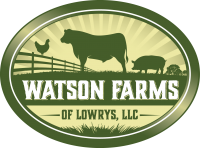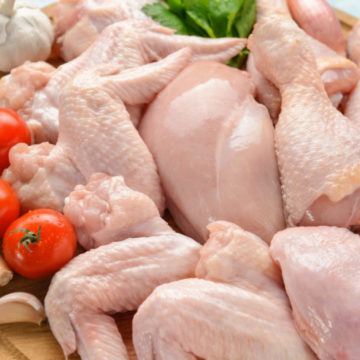Here’s the weekly roundup from Watson Farms and your direct connection to your farmer. Enjoy the latest edition of Pasture Posts! (Web versions of this newsletter can be found here on our website!)
Monocultures don’t exist in nature
Last week, we discussed how we view and deal with weeds in our pastures. This week, let’s look at the diversity in our pastures and the species that graze them and compare that to other types of agriculture.
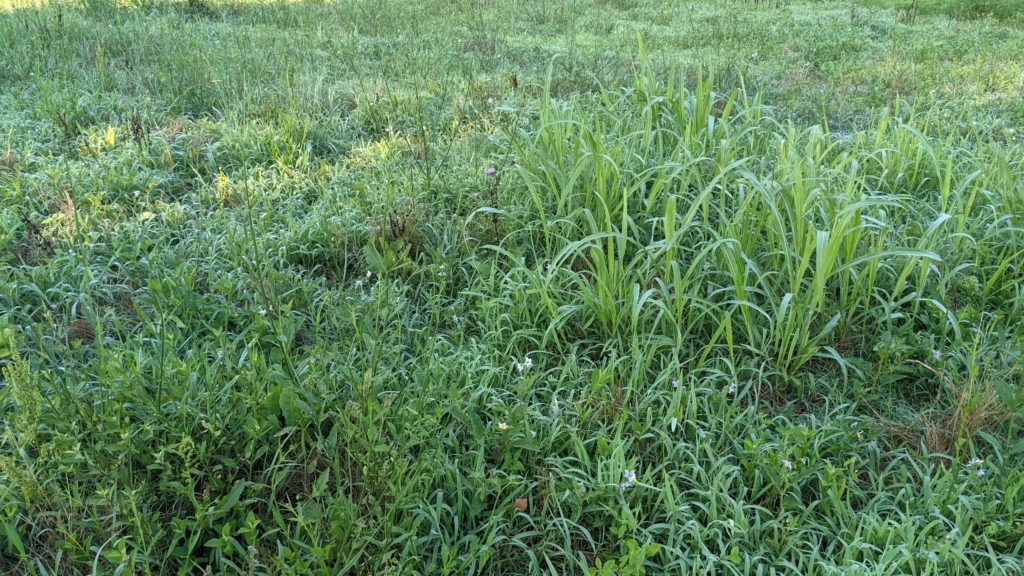
Pasture diversity is an important component in our livestock enterprises. Different types of livestock prefer different types of plants and forage. For example, both our layer chickens and broiler chickens do best with shorter grasses like bermudagrass which has finer stems and leaves than other types. It also can stand up to the short, intense period of disturbance that the chickens provide. Often after the chickens “set back” the bermudagrass, another species that may be more palatable to cattle with emerge. Also, chickens do extremely well on clover which is tender and high in protein. This is exactly what chickens need to supplement their non-GMO feed ration that we provide them with. So where we have heavier concentrations of clover, we often try to graze our chickens there in order to maximize the benefit. Cows can definitely do well on clover also, but heavy concentrations can lead to bloating problems in cattle. By matching the animal to the best pasture type, we can allow the animals to work together to maximize the yield from any particular acre.
There are several other benefits of a diverse pasture including soil health, habitat creation for pollinators, and a more balanced diet for our livestock. All these things work together to produce the healthiest livestock possible. So not only do our pastures contain more than one species, but the pastures on our farm are also grazed by more than one species of livestock.
One of the greatest advantages to having multiple types of livestock on a farm is the ability to employ the animals for different tasks. Cows are great at mowing, so oftentimes by keeping them in a relatively tight herd we can avoid having to use a tractor and mower to tame overgrown pasture. Pigs are excellent at reclaiming overgrown, rough terrain and turning it into silvopasture, which is a pasture interspersed with trees (pictured below). Chickens are a perfect replacement for a rotary harrow (pictured below) which is used to scratch the soil surface which stimulates germination of several grass types including crabgrass. Better yet, the chickens fertilize as they scratch!
The economic benefits of layering multiple species on a farm cannot be overstated either. In a time when commodity-driven, monocrop megafarms are becoming the norm, smaller, multi-species farms who direct-market are finding traction with well-informed consumers. When a customer finds us because they were searching for grass-fed beef, that same customer will likely be interested in our pork, chicken or eggs as well. This allows us to be more of a one-stop-shop and approach the convenience that more popular ways of shopping provide.
Diversity also provides economic stability. For example, when prices of inputs such as grain go up, our grass-fed beef is more appealing. Likewise, when cattle prices increase our pork and poultry can step in as a more economical substitute for price-sensitive consumers.
These things are just a few of the benefits we see daily in our diversified system of grazing. We see it as a system that mimics nature, and because of this it is a system that can not only sustain the land, but regenerate it by capturing carbon and infusing life into the soil.
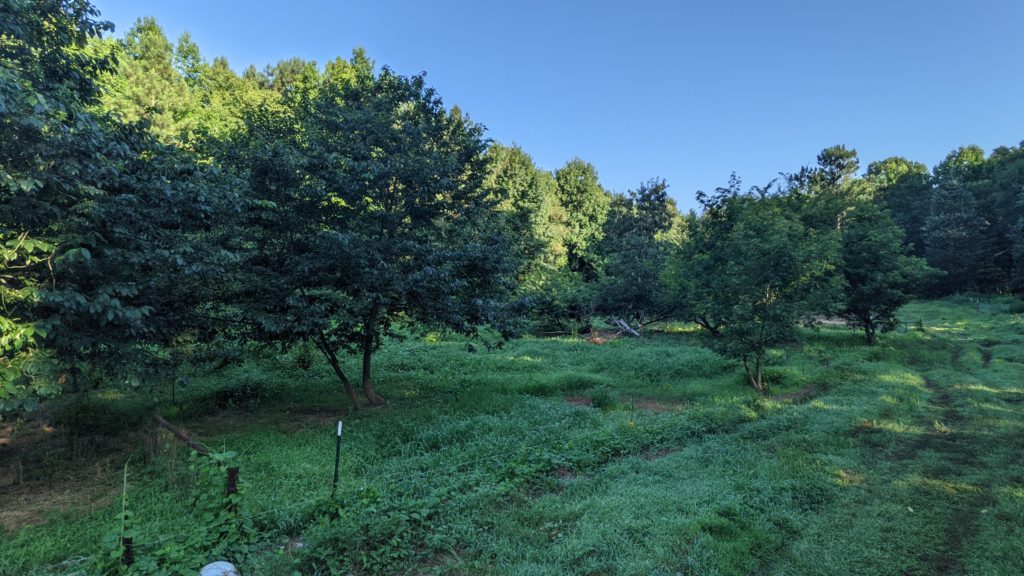
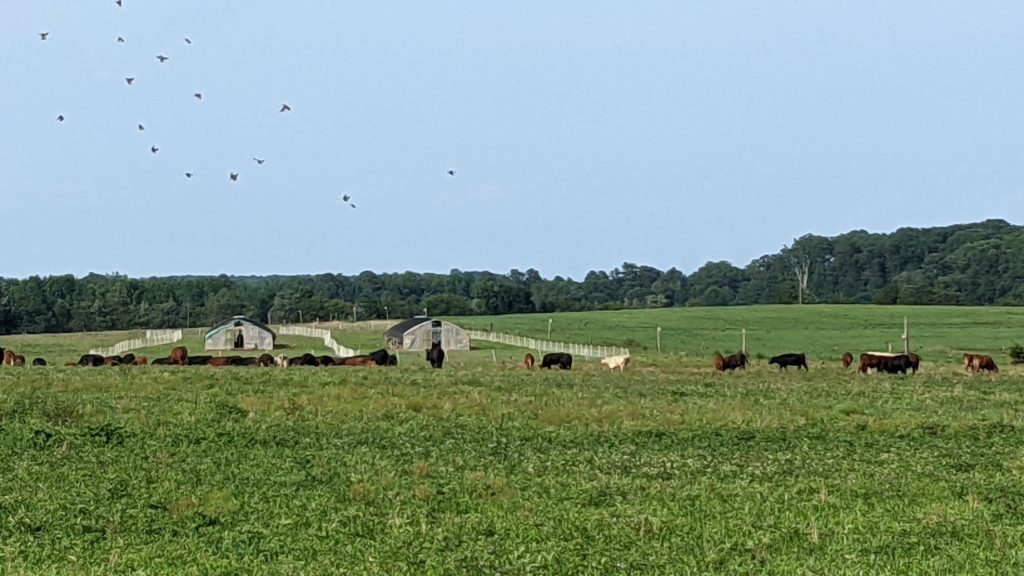
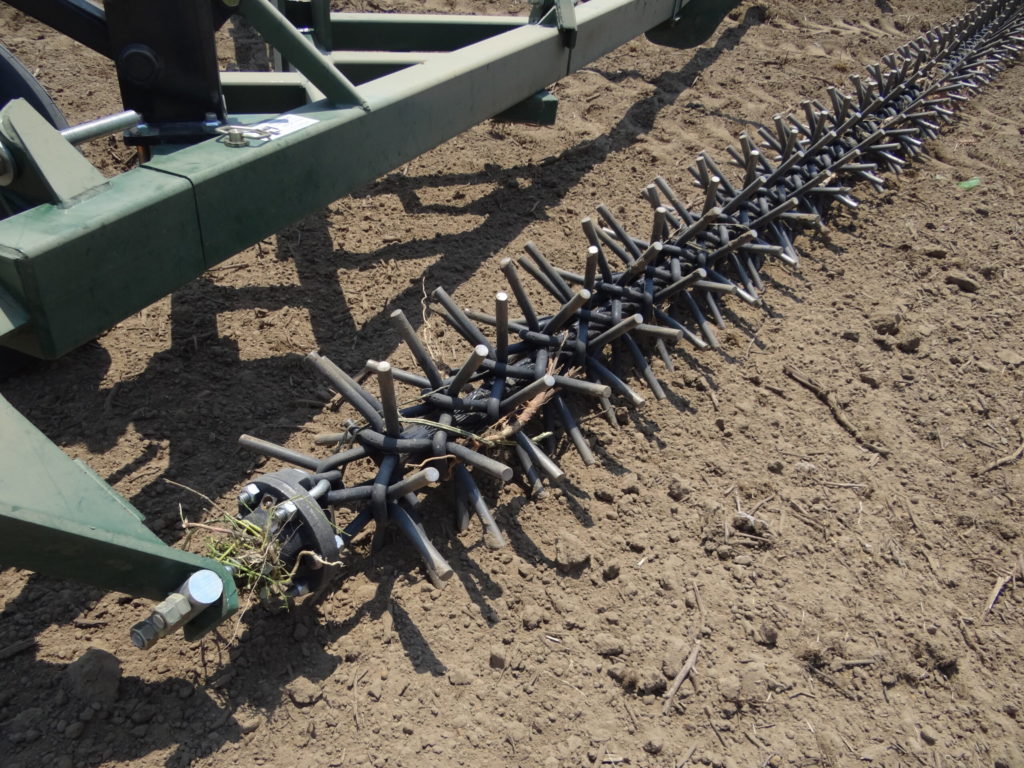
New Farm Pickup Instructions
Farm pickups are now done during store hours. See below for pickup procedures.
FARM PICKUP SUBSCRIPTION BOX CUSTOMERS: You may find that some of the pickup instructions in your auto-generated renewal emails conflict with our new hours and policies. Please disregard these outdated instructions and replace them with the following:
You must wait until you receive an email saying that your order is ready for pickup before you come to pickup your order. Please allow 1 business day for us to assemble your order. Farm pickups are done during store hours: Monday, Tuesday, Thursday, Friday: 10am to 6pm; Saturday: 10am to 2pm; Closed Sunday and Wednesday. When you arrive, you can either stay in your vehicle and someone will come out to assist you, or you may come inside the store building while we retrieve your order. You may call 803-581-8926 with questions.
More pork to be in stock soon!
We have some pigs at the processor now, and we will be restocking our shelves with pork chops, boston butts, bratwurst and all other pork cuts soon!
Thanks for being patient. Producing the right amount of product is one of the most difficult challenges that we face as a direct-to-consumer farm. We have recently added yet another walk-in freezer to allow us to be able to stockpile more product in between processing slots.
In the meantime, check out the featured products below of which we have plenty!
Product Spotlight
We just harvested a flock of chickens with more on the way. Our Little Chicken Bundle has been very popular lately! Check it out for yourself or use our UPS option to send it to friends or family that may live outside our delivery areas!
Referral Program
If you enjoy our products please consider passing the word along to your neighbors, friends and family! We don’t spend a lot of money of advertising but rather depend on customers like yourself to advertise for us if they are amazed by our products and customer service.
All you have to do is refer someone to us and when they place an order for the first time they will get a link to a form where they can say who referred them. You and the new customer will receive a $15 credit! So make sure they tell us your name. Hit the button for more info!
Order Deadlines
Charleston: 12 noon Mondays
GSP: 12 noon on Wednesdays
Charlotte/Rock Hill: 12 noon Fridays
Farm Pickup: Please wait until you receive an email stating that your order is ready to be picked up (usually 1 business day from when you place your order). Farm Pickups will now be done during our store hours:
- Monday, Tuesday, Thursday, Friday: 10am to 6pm
- Saturday: 10am to 2pm
- Closed Sunday and Wednesday
Did you know that we have a webpage that displays all the reviews we have received?
Check it out!
Check out this ⭐⭐⭐⭐⭐ review:
“Great Service and Great Product! Everything we have tried Beef, Pork and Chicken has been amazing….we are buyers for life!”
We would greatly appreciate it if you would be kind enough to leave us a review. It helps first-time customers purchase with confidence.
Thanks again for being partners in this endeavor of local, pasture-raised proteins that has truly transformed our farm. We look forward to continuing this transition while serving you long into the future.
Sincerely,
The Watsons
Pasture Posts is written by Matt Watson.
